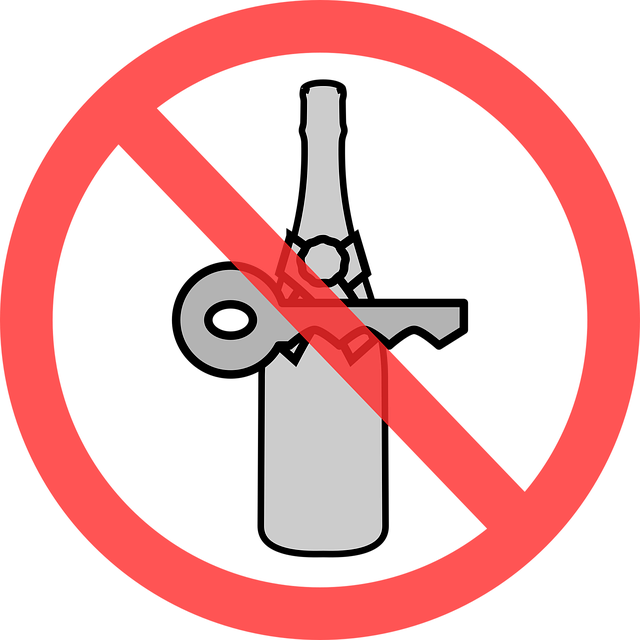Oregon's stringent DUI laws prioritize public safety with a 0.08% Blood Alcohol Content (BAC) limit and harsh penalties for offenders under 21. The state offers structured legal frameworks and clear guidelines for prosecution and defense, enabling effective strategies like challenging BAC test results, field sobriety tests, or procedural errors. Understanding these laws and tactics is crucial for building a strong defense in Oregon DUI cases, with resources available to assist individuals navigating their rights and options.
“Oregon’s legal framework for DUI defenses is a complex yet navigable landscape. This comprehensive guide explores the state’s stringent DUI laws and key definitions, delving into the penalties that await violations. We dissect the legal framework governing DUI cases in Oregon, highlighting rights and strategies for building a robust defense. Discover effective DUI tactics tailored to Oregon defendants and learn how to navigate your case with our insightful, step-by-step guide designed specifically for Oregon residents.”
- Understanding Oregon's DUI Laws: Key Definitions and Penalties
- The Legal Framework: How Oregon Handles DUI Cases
- Building a Strong DUI Defense: Strategies and Rights
- Effective DUI Tactics for Oregon Defendants
- Navigating Your DUI Case: A Comprehensive Guide for Oregon Residents
Understanding Oregon's DUI Laws: Key Definitions and Penalties

Oregon’s DUI laws are designed to deter drunk driving and ensure public safety. Understanding key definitions and penalties is crucial for anyone facing a DUI charge in this state. In Oregon, operating under the influence (OUI) refers to driving while impaired by alcohol or controlled substances. The legal blood alcohol content (BAC) limit is 0.08% for drivers aged 21 and over, with stricter penalties for those under 21.
Penalties for OUI in Oregon can include fines, license suspension, jail time, and mandatory participation in a driver intervention program. The state also allows for various DUI defense strategies, such as challenging the admissibility of BAC test results, questioning the legality of the traffic stop, or arguing that the defendant was not impaired enough to be considered under the influence. Knowing these potential defenses can help individuals navigate their DUI case and develop effective tactics to protect their legal rights in Oregon’s DUI legal framework.
The Legal Framework: How Oregon Handles DUI Cases

Oregon’s legal framework for DUI (Driving Under the Influence) cases is meticulously designed to ensure fairness and protect both the rights of accused individuals and public safety. The state has established clear guidelines and procedures that dictate how these cases are handled, from arrest to trial. Understanding this framework is crucial for anyone facing a DUI charge in Oregon, as it provides insights into potential defense strategies and the overall process.
The Oregon DUI laws outline specific criteria for determining intoxication, with a Blood Alcohol Content (BAC) limit of 0.08% for most drivers. However, law enforcement officers must adhere to strict protocols when making arrests, including ensuring probable cause and reading Miranda rights. In terms of defense strategies, Oregon’s legal framework allows for various tactics, such as challenging the admissibility of evidence, questioning the method of testing, or arguing against procedural errors during arrest or investigation. The state also provides resources like public defenders and legal aid organizations to assist those facing DUI charges in navigating their rights and options within this structured legal environment.
Building a Strong DUI Defense: Strategies and Rights

In Oregon, building a strong DUI (Driving Under the Influence) defense involves understanding and leveraging the state’s legal framework. The first step is to familiarize oneself with Oregon DUI laws, which are designed to protect both public safety and the rights of the accused. Knowledgeable defendants can use this understanding to choose effective DUI tactics tailored to their specific case.
The state’s legal framework provides several rights for individuals facing DUI charges, including the right to remain silent, the right to legal counsel, and the right to challenge the admissibility of evidence. Effective DUI defense strategies in Oregon might include disputing the legality of a traffic stop, challenging the accuracy of breath or blood test results, or arguing that police violated a defendant’s constitutional rights during the arrest or investigation process. A comprehensive Oregon DUI guide can help navigate these strategies and ensure the best possible outcome for those charged with DUI offenses.
Effective DUI Tactics for Oregon Defendants

In the face of Oregon’s strict DUI laws, knowing effective DUI tactics can significantly strengthen a defendant’s case. Understanding the state’s legal framework is crucial for mounting a robust defense. Defendants should be aware that Oregon has some of the toughest DUI penalties in the nation, making it all the more important to employ strategic defense strategies.
One key tactic involves challenging the admissibility of evidence. This includes questioning the validity of field sobriety tests and breathalyzer readings. Legal professionals can also explore potential violations of a defendant’s rights during the arrest and booking process. Additionally, building a strong character witness and presenting a compelling narrative of events leading up to the arrest can help sway the jury’s perception. An Oregon DUI guide should also outline options for negotiating plea bargains or exploring alternative sentencing, providing defendants with diverse avenues for case defense.
Navigating Your DUI Case: A Comprehensive Guide for Oregon Residents

Navigating a DUI (Driving Under the Influence) case in Oregon requires understanding both the state’s strict laws and your legal rights. The first step for Oregon residents facing such charges is to familiarize themselves with the state’s DUI guidelines, which are designed to ensure fair trials and protect the rights of accused individuals. The Oregon DUI legal framework provides a clear structure for these cases, outlining procedures from initial arrest to potential sentencing.
This comprehensive guide offers valuable insights into effective DUI defense strategies, empowering residents to make informed decisions. By understanding the process and employing recognized tactics, individuals can better defend themselves in court. From challenging field sobriety tests to questioning evidence collection methods, a thorough knowledge of Oregon DUI laws enables those charged to navigate their case with confidence, potentially leading to more favorable outcomes.






